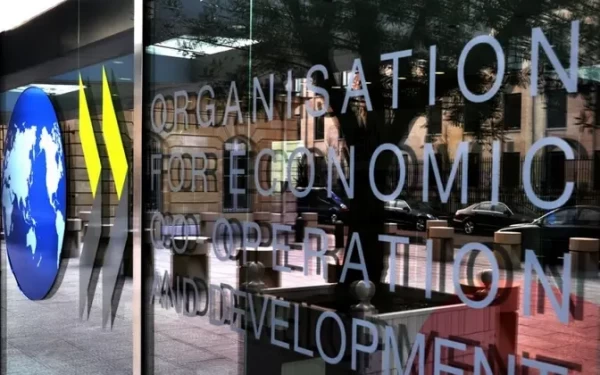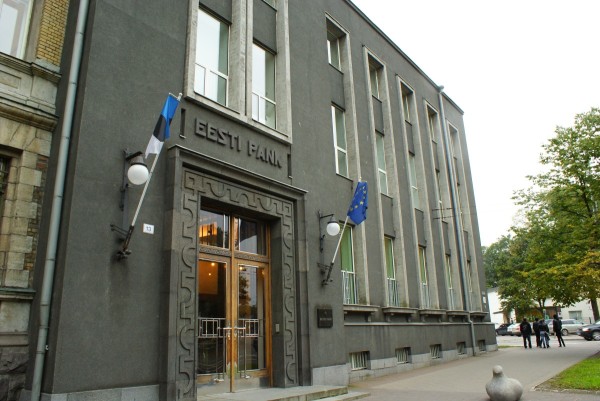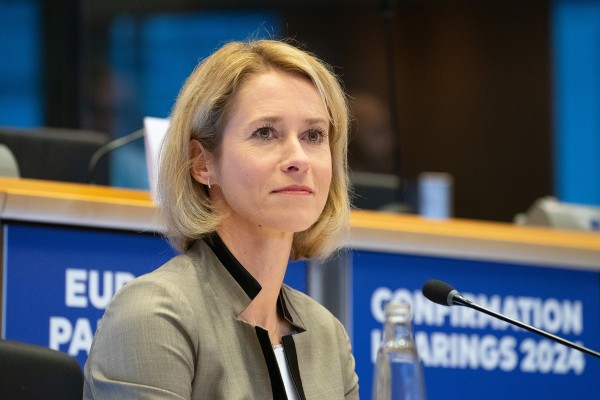Canada calls the text a "tremendous achievement", Argentina says it's a "historic moment" and the United States thinks the deal sends a clear message: "The race to the bottom is one step closer to coming to an end".
Paris, Berlin, Madrid, Rome and many others joined Brussels on Thursday evening in a collective celebration of the good news.
But not everyone agrees.
Three EU member states - Estonia, Hungary and Ireland - refused to sign up to the deal, which was reached within the Inclusive Framework of the Organisation for Economic Co-operation and Development (OECD), a group that encompasses 139 countries and jurisdictions.
Of all these, only nine opted out: Kenya, Nigeria, Peru, Sri Lanka, the three aforementioned EU countries, and two Caribbean islands generally considered tax havens: Barbados, and Saint Vincent and the Grenadines. All the G20 countries, including China, Russia and India, endorsed the agreement
The draft text is based on the OECD's two-pillar package whose main goal is to increase fairness, certainty and stability in the global tax system.
The decision from Dublin, Budapest and Tallinn immediately cast a shadow over the EU's negotiating position ahead of next week's G20 meeting, where the Commission intends to showcase a unified European standpoint that matches the ambitions of like-minded allies, like the US, the UK and Canada.
According to the EU treaties, any changes to tax policy need to be approved by unanimity, which means that just one "no" is enough to derail a reform supported by the other 26 member states.
Advertisement / Reklaam
Advertisement / Reklaam
The unanimity requirement, also present in foreign policy, has created a disparate tax landscape across the bloc, where different regimes and rates coexist within a borderless single market.On the one hand, countries like Ireland (12.5%) and Hungary (9%) offer attractive corporate tax rates in order to entice international companies to set up their European headquarters in their cities. On the other hand, companies based in France, Germany, Portugal and Belgium have to submit their profits to rates that exceed 29% – almost triple that of their peers.
Estonia, whose corporate tax rate ranges from 14 to 20% and only targets "distributed profits" (mainly earnings shared with shareholders as dividends), voiced two main objections to the OECD text.
"Firstly, the current version enables the state where the company's headquarters is located to tax the profit earned in Estonia if Estonia has not taxed the local subsidiary's profit within three to four years," a statement from the Ministry of Finance said.
"Secondly, a minimum turnover rate should be set for the groups from which a minimum tax may be levied, rather than it being left open."
"I was not in a position to join the consensus on the agreement and specifically a global minimum effective tax rate of ‘at least 15%’ today. I have expressed Ireland’s reservation, but remain committed to the process and aim to find an outcome that Ireland can yet support," said Paschal Donohoe, Ireland's Finance Minister, shortly after the breakthrough was announced.
His Hungarian counterpart, Mihály Varga, argued a minimum tax rate would hamper growth and constitute a burden for the country's economic activity.
The three countries insisted on one particular point: any OECD deal must meet the needs of all countries, both large and small. Ireland, Hungary and Estonia see their attractive corporate tax rates as an essential tool to compete against most powerful economies.
For Brussels, the bold move of Ireland, Hungary and Estonia puts the whole bloc in a precarious and somewhat awkward negotiating position, where the official line towards the international community is diminished by a group of small countries that together account for over 4% of the EU's GDP,
Advertisement / Reklaam
Advertisement / Reklaam
Reacting to the news on Friday afternoon, a spokesperson of the European Commission said the executive will continue to engage with the three member states to guarantee the bloc can reach internal consensus by October. The Commission hopes that, as technical details of the draft text are developed, the three holdouts will be convinced to sign off.























